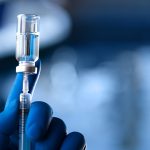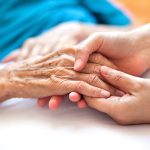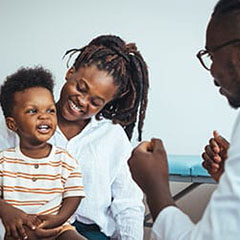-
The HPV Vaccine Prevents Cancer. Why Do Many Cancer Survivors Not Get It?
A recent study investigated why some young cancer survivors did not want the HPV vaccine and how they can be better served.
by Pamela Rafalow Grossman
-
March 24: The Week in Cancer News
Drug shortage affects patients with advanced prostate cancer, and military pilots and ground crews have increased cancer rates.
by Marci A. Landsmann
-
March 17: The Week in Cancer News
Active monitoring a viable choice for some with prostate cancer, and cancer’s effects on women’s sexual activity not addressed by providers.
by Kevin McLaughlin
-
The Future of Cancer Care
Forum discusses next-generation technologies that will guide oncology research and patient care in the years to come.
by Thomas Celona
-
March 10: The Week in Cancer News
The FDA sets rule that requires mammography providers to notify women who have dense breasts, and the ‘Jimmy Carter effect’ on immunotherapy treatment.
by Eric Fitzsimmons
-
On Wearing a Brave Face for Myself and Others
A woman living with lung cancer reflects on the contrast between how people see her and how she feels as someone living with metastatic disease.
by Suzanne Adriana Remington
-
March 3: The Week in Cancer News
Exercising only 11 minutes per day can reduce your cancer risk, and new robotic technology helps detect early-stage lung cancer.
by Thomas Celona
-
Cervical Cancer Found at Later Stages After 65
A study found women in California were more likely to have cervical cancer diagnoses at a later stage after age 65.
by Jon Kelvey
-
February 24: The Week in Cancer News
Aggressive end-of-life measures are common in people with advanced cancer in nursing homes, and findings suggest immune checkpoint inhibitors could one day be the preferred treatment in localized cancer.
by Marci A. Landsmann
Cancer Talk
Many People Don’t Get Colonoscopy After Receiving Abnormal Blood Tests
About half of people who receive abnormal results from colorectal cancer screening tests don’t follow up with a colonoscopy.
by Laura Gesualdi Gilmore
Can Steroids Impair Immunotherapy for Cancer?A new study suggests steroids could blunt the effects of some immunotherapies, but researchers say they remain necessary for some patients.
by Kyle Bagenstose
Treatment Combination Improves Survival in Platinum-resistant Ovarian CancerPreliminary results found that combining relacorilant with nab-paclitaxel improved outcomes for women with advanced ovarian cancer.
by Sandra Gordon
CAR T-cell Therapy Shows Response in Rare Brain CancerPotential new approach to treating diffuse intrinsic pontine glioma uses engineered immune cells infused directly to the brain.
by Taneia Surles














